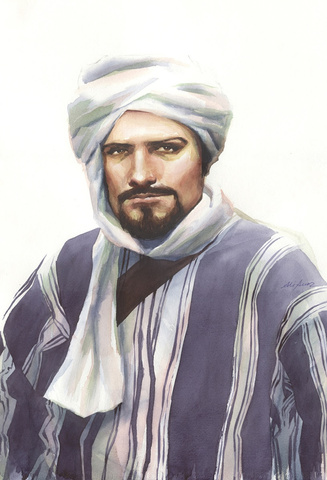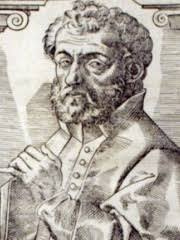Indian History
India was one of the richest countries in history. This was the reason why the majority of the foreign traders decided to come to India for trading. Indians have been trading with foreigners since 600BC. They mainly used to trade spices, metals and even textiles.
Ibn Battuta-
Moroccan explorer and philosopher Ibn Battuta, who was born in 1304, is well known for his amazing journeys. He set out on a voyage that would last for almost three decades and would encompass a sizable portion of Africa, the Middle East, and Asia. His meticulously detailed accounts, which he included in his travel book "Rihla," provide priceless historical, geographical, and cultural insights. In terms of distance traveled, Ibn Battuta's exploration was greater than that of his

contemporaries, including Marco Polo. He became a notable person in the history of discovery thanks to his exploits and observations of communities, customs, and governing dynasties, which shed light on the 14th century's diverse world.
Ibn Battuta came to India through the mountains of Afghanistan and nowadays also known as hindu Kush In the late 1334 the Moroccan explorer Ibn Battuta came to India seeking official employment ,signing a contract which stated that he agreed to stay in india. Ibn battuta cleverly assembled his gifts for the sultan Muhammad Tughluq,On his approach towards Sultan Muhammad Tughlaq, he learnt that the great Sultan liked to take gifts from his visitors, and in return the Sultan, used to give gifts, which are of far superior worth to visitors.The gifts he brought to the sultan were arrows, several camels, thirty horses, and several slaves and other goods and the gifts he received were 2,000 silver dinars, a furnished house and the job of a judge with an annual salary of 5,000 silver dinars.This meant that Ibn Battuta had a great relationship with the sultan Muhammad Tughlaq which lead to him getting employed by him.Ibn Battuta began working as a judge. Because he didn't speak Persian well, he was given two assistants.He also saved the sultan from huge debt.Even though serving as a judge for 7 years and saving the sultan form huge debt he faced some consequences, one of them being Ibn Battuta had married a woman whose father was a court official who had plotted a rebellion andas the sultan had found about this he executed the father the next day.But the biggest problem he had faced was with sufi holy man ,he was ibn’s very close friend which wanted to
just have a religious life and didn’t want to get involved in politics so he did not listen to any of the commands from the sultan Muhammad Tughlaqdo. In retaliation Muhammad had the holy man's beard plucked out hair by hair, then banished him from Delhi. Later the Sultan ordered him to return to court, which the holy man refused to do. The man was arrested, tortured in the most horrible way, then beheaded.Ibn Battuta's trip to India represented an essential turning point in his lengthy travels.He spent several years traveling around its various regions, meeting different kings, and becoming fully immersed in the land's rich cultural heritage. His in-depth descriptions provided insight into the social, political, and economic climate of India. Ibn Battuta left India and continued his expeditions in the east, leaving a lasting legacy as one of history's most amazing explorers of his era.
Niccolo Di Conti-
Niccolò di Conti, born in 1395, Chioggia, near Venice Died in 1469. He is an Italian merchant,writer and explorer. He had 25 years of travels in southern Asia helping and contributing to the knowledge of southern Asia for Europe. The 1450 Fra Maura map which indicated that there is a sea route from Europe around Africa to India. He was one of the human sources for the map.

Niccolo de Conti traveled to Damascus in Syria, he spent 25 years here studying arabic. His familiarity and fluency of the languages and the culture of Islamic world made him travel to different places in Asia. He used ships used by Islamic merchants to travel. Hence he traveled as a merchant. After he passed through Persia, he sailed along the coast of Malabar. He made his way to Kambath (Cambay) in Gujarat, India. He has visited many places in India such as Cambay in Gujarat , Pacamuria, Helly and Vijayanagara. Niccolo di Conti 's most time spent in India was in the kingdom Vijayanagara. Vijayanagara is a kingdom founded by Harihara and Bukka. Their reign was from 1336 to 1646 AD. He visited Vijayanagara during the time of Dev Raya II(grandson of Harihara). During his tenure in Vijayanagara, Niccol Conti had an unusual interaction with the emperors of India. He probably had contact with the local kings and nobility as a respected foreign merchant. Although there are few specifics about his encounters, it is conceivable that Conti developed diplomatic and commercial ties with Vijayanagara's ruling class. His trading activities would have been made easier by these contacts, which would also have given him access to beneficial benefits and resources. Conti's descriptions of the splendor and wealth of Indian kings and their courts, as well as their support of the arts and culture, were crucial in shedding light on the complex web of Vijayanagara's royal society. Like many other European businessmen of the era, Niccol Conti conducted a range of businesses with India. He was particularly interested in obtaining the spices that were in high demand in Europe, such as pepper, cloves, cinnamon, and cardamom. Conti also dealt in valuable stones, such as the well
known rubies and diamonds from India. Additionally, he dealt in finely woven textiles like silk and cotton that featured wonderful designs. In addition to trading products, Conti also promoted cultural interchange between India and Europe during the Renaissance by exchanging ideas, cultural artifacts, and expertise.
Throughout his journey to India, Niccol Conti ran into a number of problems. He first had to travel through perilous waters while dodging storms and the constant threat of pirates, endangering both his life and the priceless cargo he was carrying. He also had to deal with difficult physical circumstances, such as abrasive climates and strange ailments that had a negative impact on his health. Communication and understanding were hampered by other impediments including linguistic and cultural differences. Conti had to worry about political unrest and violence in the areas he passed through, which may have harmed his safety and business endeavors. Despite these difficulties, Conti was able to develop new economic and cultural exchange routes between Europe and India thanks to his agility and persistence. Future explorers and traders wanting to cross the vast and uncharted lands of the world benefited from his experiences.
The rich resources and vibrant culture of India have always captivated traders. These courageous people have made significant connections despite obstacles and struggles, opening up lucrative markets and encouraging the exchange of commodities and ideas. Their work has had an impact on business as well as global culture, adding diversity. India continues to be a popular trading destination, which guarantees the survival of the tradition of exploration and trade.
Citation:-
Article title-Niccolò Dei Conti [AD 1395 - AD 1469] URL-https://byjus.com/free-ias-prep/niccolo-dei-conti-1395-1469
Website title-BYJUS
Date accessed-June 17th, 2023
Date published-May 25, 2021
Article title-Niccolò dei Conti
URL- https://www.britannica.com/biography/Niccolo-dei-Conti
Website title-Encyclopædia Britannica
Date Accessed- June 17th,2023
Article title-India Recognita, The Travels of Nicolo de Conti , from Oriente e Occidente nel Rinascimento, ed L Secchi Tarugi, Milan 2009
Website title-Academia.edu
Date Accessed-17th June,2023
Date Published-May 26th,2014
Article title- Ibn Battuta’s Memoir on Tughlaq Dynasty
URL-https://www.jagranjosh.com/general-knowledge/ibn-battutas-memoir-on-tughlaq-dynasty-1442211534-1
Website title- Jagranjosh.com
Date Accessed- June 17,2023
Date Published- May 24,2016